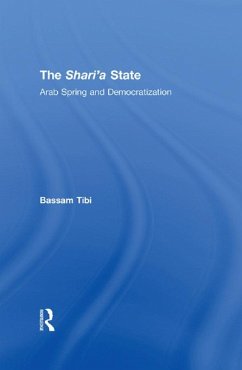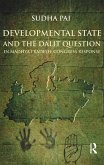In contrast to the prevailing view which sees the Arab Spring as a revolution, this book argues that the phenomenon has been neither a Spring, nor a revolution. The term 'Arab Spring,' connotes a just rebellion that led to toppling dictators and authoritarian rulers, yet in The Sharia State, Bassam Tibi challenges the unchecked assumption that the seizure of leadership by Islamists is a part of the democratization of the Middle East.
Providing a new perspective on the relationship between the Arab Spring and democratization, this book is an essential read for students and scholars of Middle Eastern Studies, Islamic Studies and Politics.
Dieser Download kann aus rechtlichen Gründen nur mit Rechnungsadresse in A, B, BG, CY, CZ, D, DK, EW, E, FIN, F, GR, HR, H, IRL, I, LT, L, LR, M, NL, PL, P, R, S, SLO, SK ausgeliefert werden.









